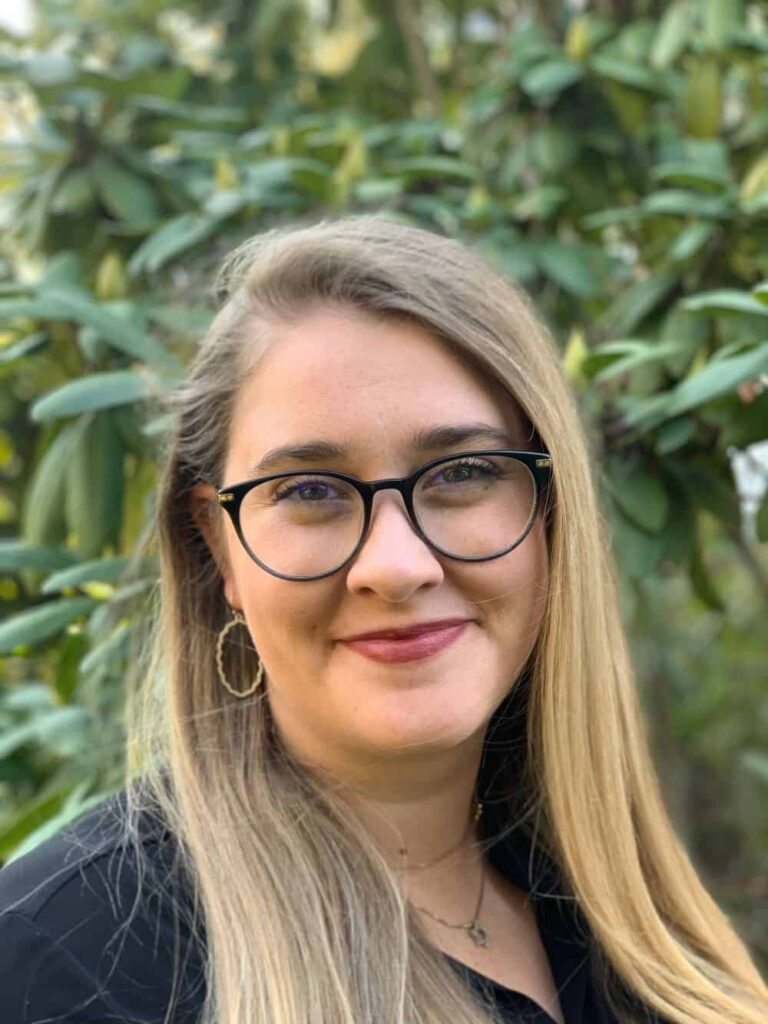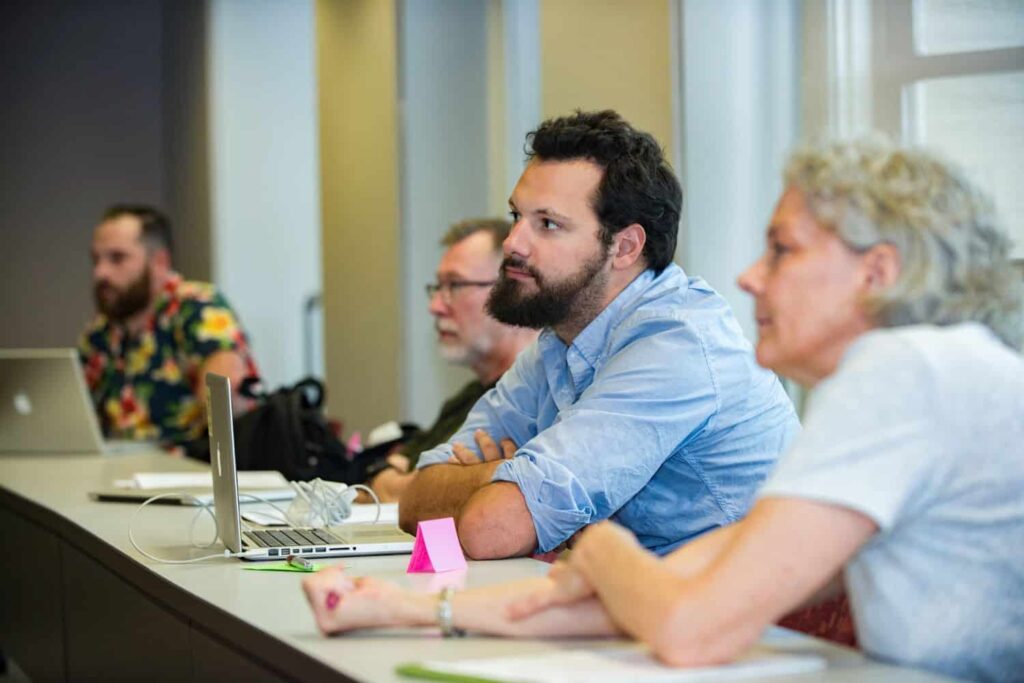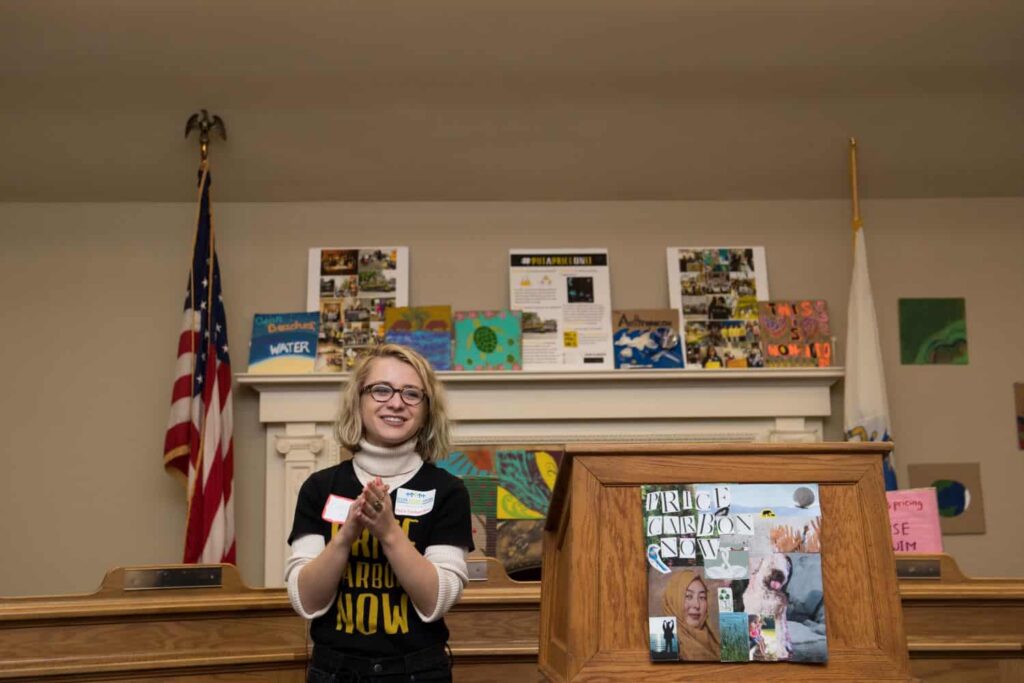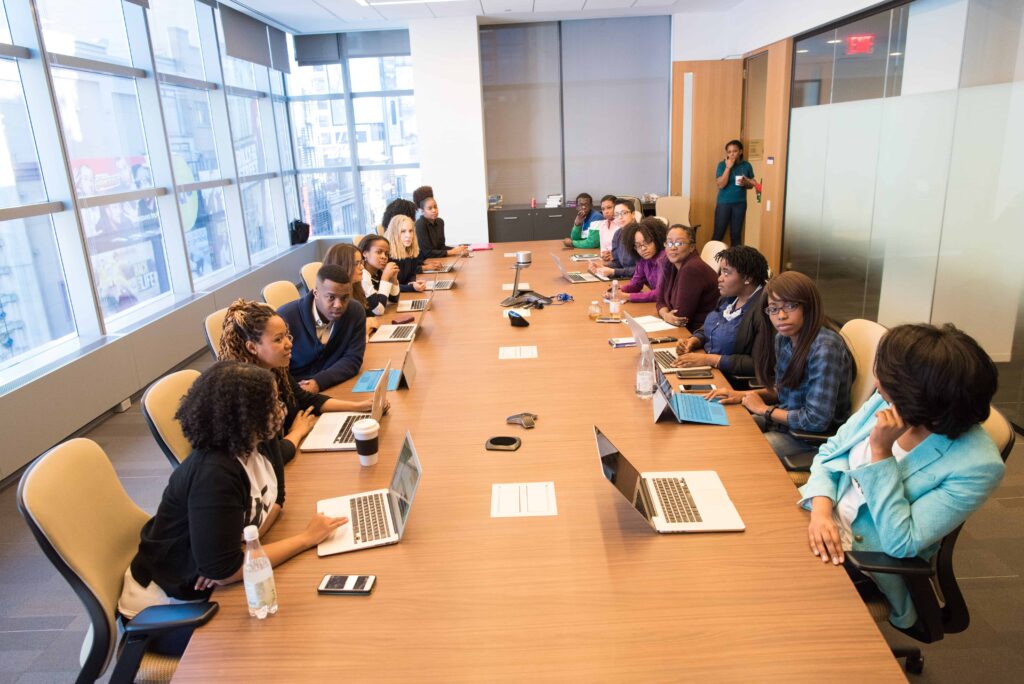
As the nation’s premier institution of communication and the arts, Emerson’s Sports Communication, Political Communication, and Public Relations graduate programs prepare students for success. If you are looking for more information about this communication suite of programs, look no further. Today we’ll hear from Julie Scheinthal, one of our amazing graduate admissions counselors. She’ll share some of the core components of communication graduate programs at Emerson and answer some frequently asked questions about these programs.
Q: What makes Emerson’s Sports Communication, Political Communication, and Public Relations programs unique?
A: These programs are unique in their interconnectedness. Our Sports Communication, Political Communication, and Public Relations programs are sister programs in our communication suite of graduate programs. The programs share three required courses, and students often take electives from the other two programs in the communication suite. This gives students a dynamic ability to dabble in other areas of study.
Because our communication programs have overlapping coursework and small class sizes, the communication suite fosters a strong sense of community. The communication department also regularly hosts community-building events such as Cheese, Crackers, and Communication or Pizza and Politics. The result of this program’s small cohort size and regular events is a tightly-knit community of graduate students passionate about communication within sports, politics, and public affairs.
Our communication programs are also unique in that they allow students to study internationally. Students have opportunities to study in Rosarito, Mexico; Sydney, Australia; and Barcelona, Spain. Graduate communication students have access to global networking opportunities in both our Sports Communication, Political Communication, and Public Relations MA programs.
Q: How big are the cohort sizes?
A: Students in the communication studies department can start in the spring or fall semester. Each spring, we have about 10 new students joining the Sports Communication, Political Communication, and Public Relations MA programs. In the fall semester, these programs typically accept around 20 students in total. We always aim to recruit more students, though, so students shouldn’t let these small cohort sizes discourage them from applying.
Q: What are the graduate certificates?
A: When students study Sports Communication, Political Communication, or Public Relations, they can choose to earn an MA or a graduate certificate. Both MA and graduate certificate tracks require students to take courses at the graduate level. However, the graduate certificate track requires only 4 classes, whereas the MA programs consist of 9 classes.
Q: Who is a good fit for the Sports Communication, Political Communication, and Public Relations programs?
A: Our graduate certificate programs are a great option for students who aren’t ready or able to commit to a full MA program. The certificate programs only take one year to complete, so they are less of a time and financial commitment than an MA. Our certificate programs are also an excellent option for people who already have a graduate degree and simply want some extra education in a specific communication field.

Our Sports Communication MA sits at the juncture between sports public relations, public media, and politics. This program is perfect for anyone who wants to break into the sports industry as a sports agent, social media manager, or journalist.
The Political Communication MA is for those who would like to work in politics but are not interested solely in political science. Students in this program gain exposure to public relations, public media, and politics, which prepares them to work in political areas such as polling and speech writing. This is a versatile degree that helps students gain positions beyond entry-level campaign work.
Lastly, our Public Relations MA is great for a wide variety of students. Some of our students focus their education on the general sphere of public relations. Other students have experience in another field, such as healthcare or business, and they use this program as a way to advance their mass communication skills in their field of interest. Our program is versatile and customizable so that students of all backgrounds and experience levels are a good fit.

Q: Can I receive scholarships for graduate school?
A: Absolutely. When you apply to one of Emerson’s graduate programs, we automatically consider you for scholarships and other financial aid; there’s no extra application needed. Our Transformational Leaders Fellowship is the one exception. You do need to submit an application for this program, and if you are accepted for the fellowship, you receive a stipend and scholarship.
Q: How can I make my application more competitive?
A: Pay attention to the small details. Emerson takes a holistic admissions approach, meaning we carefully consider every piece of your application, from the resume to letters of recommendation to your essays. Take the time to write your application essays with care and be sure you answer each question in full. We use your application to assess whether you would thrive in a writing-intensive graduate program, so show us your best writing.
When it’s time to ask for letters of recommendation, your best bet is to ask people who know you well. If you got an “A” in a class but the professor only knows your name and grade in their class, they won’t write as compelling of a letter. You’re better off asking a professor who knows you very well, even if you didn’t get a perfect grade in their class. If you’ve been out of college for some time, you can always ask supervisors for letters of recommendation.
Q: Are there online options for the Sports Communication, Political Communication, and Public Relations programs?
A: Currently, all of our MA and graduate certificate programs for Sports Communication, Political Communication, and Public Relations are in-person at our Boston campus. However, most classes are offered in the evening to accommodate students’ work and internship schedules.
Q: What kinds of jobs do students get with Emerson’s Sports Communication, Political Communication, and Public Relations programs?
A: Our MA and graduate certificate programs focus on providing students with the skills they need to excel in the professional world. Students in our Sports Communication programs have interned for the likes of Real Madrid, the New England Patriots, the Boston Red Sox, and more. Our Sports Communication students go on to work in industries such as sports diplomacy, sports public relations, esports, and more.

Alumni from our Political Communication programs have gone on to work for MSNBC, Blue Cross Blue Shield, Hagin Investments, and more. With training at the graduate level, students are equipped for any number of political communication positions, including campaign managers, pollsters, and speechwriters.
Graduate students from our Public Relations programs have gained positions at the likes of Samuel Adams, Harvard Business School, and Joslin Diabetes Center. Public Relations graduate students may explore careers such as public relations strategist, public affairs manager, executive communications director, and more.
We hope this blog has answered some of your questions about Emerson’s Sports Communication, Political Communication, and Public Relations graduate programs. If you have more questions, schedule a call with an admissions counselor or read about current students’ experiences in these programs. For information about our other graduate programs, be sure to read our Q&A blogs about different programs.


Leave a Reply